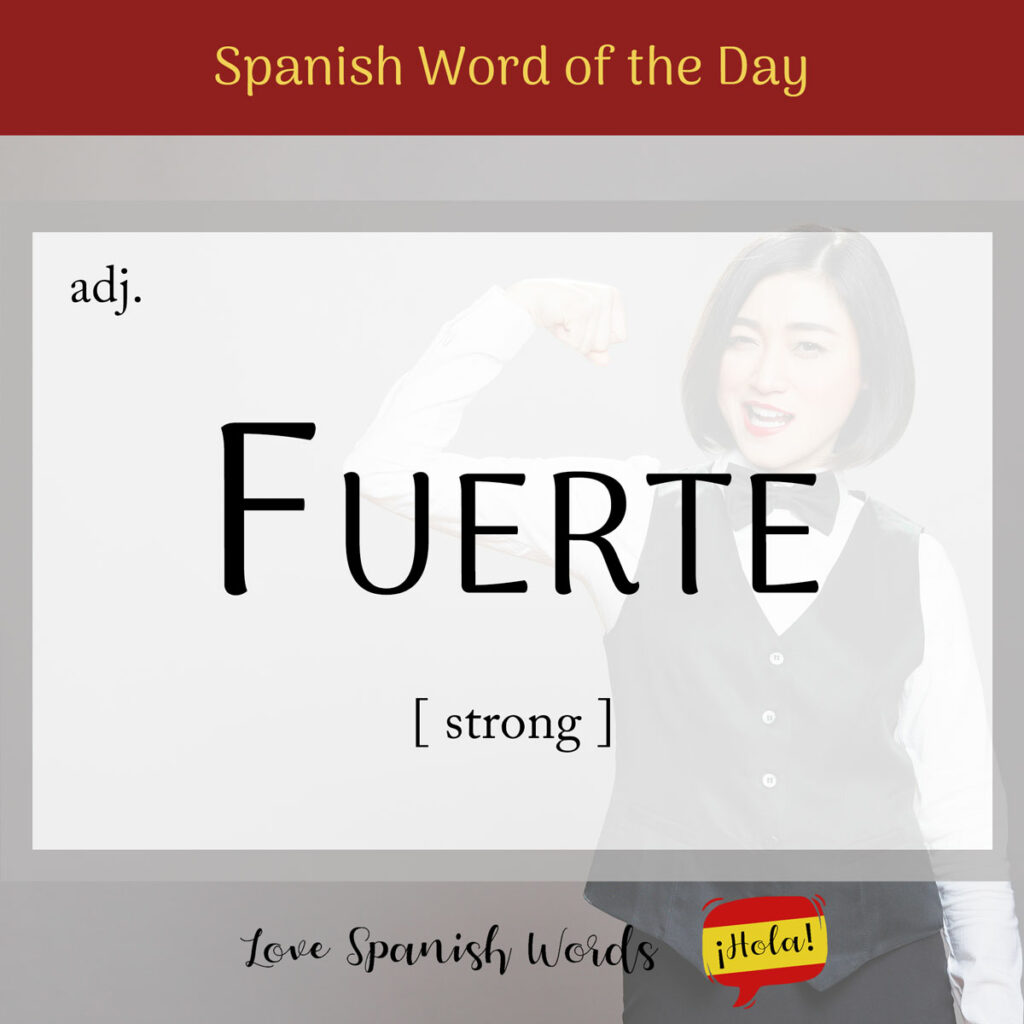The Spanish word for strong, fuerte, comes from the Latin adjective fortis meaning strong and also brave (valiente).
Latin American Pronunciation
European Pronunciation

Fuerte is an invariable adjective, meaning it does not change to agree with the gender of its subject. However, it does change to agree in number, becoming fuertes in the plural form.
¡Es una mujer muy fuerte y me dijo algunas cosas fuertes!
She’s a very strong woman and she said some strong things to me!

When used as an adjective, fuerte can mean strong in various contexts. It can describe the strength of a material (material), a smell (olor), a taste (sabor), or a bright color (color). It can also refer to the character (carácter) of a person or animal, describe a loud sound (ruido) or voice (voz), indicate something impactful like a blow (golpe), and even describe something unpleasant like a pain (dolor) or a cold (resfriado).
For example:
- brazos fuertes = strong arms
- tejido fuerte = strong cloth
- construcción fuerte = strong construction
- olor fuerte = strong smell
- mujer fuerte = strong woman
- caja fuerte = strong box or safe
- película fuerte = strong or shocking film
- agua fuerte = nitric acid
Por favor ponga la música más fuerte.
Please turn the music up.

Did you know that…?
When writing a letter or texting a loved one, you can sign off with Un fuerte abrazo (A strong/big hug) and this means the same as signing off with Lots of love.
The word fuerte can also be used to say whether or not you are strong or knowledgeable on a particular topic.
Soy muy fuerte sobre el tema de los botánicos.
I’m very strong on the topic of botanicals.
If you want to indicate that something is stronger than something else, you would use más fuerte. Doing something strongly would be expressed as fuertemente, and the superlative form, meaning very, very, or incredibly strong, would be fuertísimo.
Finally, fuerte is also a masculine noun meaning military fort.

Fun fact…
Fuerte can also be used to express amazement, shock or surprise:
¡Qué fuerte! – How strong/shocking!
¡Qué fuerte lo que has dicho! – How strong/impactful what you’ve said is!
¡Qué fuerte lo que pasó! – What happened was shocking!
And funnily enough in Chile it can mean somebody smells!
¡Qué fuerte andas! – You stink!
Es fuerte de patas – His feet stink
Idiom using ‘fuerte’:
Fuerte como un roble
Literal translation: Strong like an oak
English meaning: As strong as an ox (very strong)

